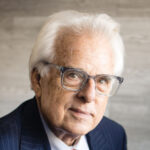I learned about the first successful human cloning last Monday, but couldn’t write about it until Wednesday because of a news embargo. The peer reviewed paper in Cell was rushed to print because is a huge deal. But, much to my surprise, it only made mild news. There were two reasons for that I think. First, we just went through a very busy news week. But I think the primary reason is that the scientists and media pretended that this wasn’t really human cloning for political reasons; just a step in that general direction.
But human cloning it was, and that is a huge deal, opening up the possibility of genetic engineering of embryos, creating custom made fetuses as organ farms, and the birth of a cloned baby. News stories often acted as if the experiment merely turned “unfertilized eggs” and skin cells into embryonic stem cells. Not true: The act of cloning creates an embryo. After that, the cloning is over.
Just like Dolly the cloned sheep was a cloned sheep embryo before she was a born lamb, these human embryos were nascent human beings created through asexual means. They were not implanted into a uterus, as Dolly’s embryo was, but destroyed for their stem cells. Indeed, they were created precisely to be destroyed. That is a very big moral deal.
Even though it is off to a slow start due to advocacy obfuscation, the reality of human cloning will soon create white-hot public controversies, a few of which I discuss elsewhere. These include:
- Whether Human SCNT Cloning should be outlawed;
- Whether the federal government should fund human cloning research;
- How — and whether — to protect women from being exploited for their eggs — the essential ingredient in human cloning, one egg per try — since egg extraction can cause significant harm and even death to suppliers.
I conclude with a warning. From, “The Arrival of Human Cloning:”
The fact that human beings can be cloned is a scientific triumph, but it is also an ethical earthquake. Because these experiments offer the potential to advance scientific knowledge, they will tempt us — always for “the best” reasons — to set aside our convictions about the intrinsic dignity of all human life.
The next decade may well decide if Huxley was right about the coming of Brave New World.
Author Profile

Latest entries
- BlogJanuary 27, 2015Ready or Not: Here Comes 2015 in Bioethics!
- BlogOctober 20, 2014A Case of Surrogacy’s Gordian Knot
 BlogAugust 19, 2014Transhumanism’s Eugenic Authoritarianism
BlogAugust 19, 2014Transhumanism’s Eugenic Authoritarianism- BlogAugust 13, 2014Suicide Cult Pushes Home Made Suicide Kits

